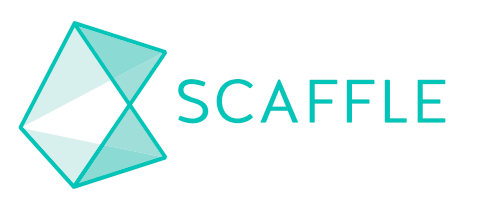$15k to $75k
estimated cost of external help
estimated cost of external help
- Scan and research
- Consult
3-5 weeks
estimated run time
estimated run time
9 weeks or more
estimated lead time
estimated lead time
51-150
participants
participants
Experienced facilitator
recommended experience
recommended experience
A deliberative process in which a representative, randomly selected group of citizens works alongside experts to develop and describe points of consensus on a particular issue. It can also be used to generate ideas or deliberate on courses of action on which the participants can agree.
The consensus forum is a scaled-up version of a consensus conference, allowing for a more representative range of participants. It differs, however, in that the final report or outputs are compiled by the convening organisation rather than the participants themselves. Like a consensus conference, the outcome is a set of agreed-upon points or courses of action, intended to add information to communications or the decision-making process, but it leaves the process of actual decision-making in the hands of others.
The consensus forum is a scaled-up version of a consensus conference, allowing for a more representative range of participants. It differs, however, in that the final report or outputs are compiled by the convening organisation rather than the participants themselves. Like a consensus conference, the outcome is a set of agreed-upon points or courses of action, intended to add information to communications or the decision-making process, but it leaves the process of actual decision-making in the hands of others.
Related video content
In 5 steps...
- Determine the make-up of the conference and recruit participants. The intent is to involve citizens, and that the mix be representative of the affected community’s demographics. When you invite participants, ensure they understand the process and timing.
- Gather preliminary reading material for the participants. This should cover both sides of the argument and be fact-based. You might also schedule talks or host discussions that further inform the participants prior to the commencement of the conference.
- Determine the format of the output you’re seeking from the participants. Is it centred on particular questions? Do you want them to generate ideas or courses of action on which they agree? Who will use the output? This will all help in determining its form.
- Convene the participants to work together on exploring their points of consensus. While a large number of people may be convened for the day/s of the event, the work will be done in small groups, each led by a facilitator to find the consensus points based on the facts or questions provided.
- Compile a formal report to communicate the outcome of the forum. Emphasise where points were arrived at by multiple groups, and anything on which all of the forum attendees agreed.
When to use it
A consensus forum is useful where there is a lot of conflict or misunderstanding about a topic, and you need to better understand how to get your affected stakeholders to agree, or to communicate well with them during the decision-making process. The process is about clarification, and this focus on consensus will break down barriers that might otherwise prevent traction or progress.
Benefits
Immediate
- Ability to explore issues or ideas in detail.
- Direct citizen input into a decision-making process.
- Highly focused and detailed discussion.
- Improved education of citizens on the topic (those participating and attending).
- Provides a gauge of public opinion.
- Higher degrees of participant satisfaction and trust.
- Higher-quality, better-aligned solutions.
- Increased levels of support for outcomes.
Risks
- While a reasonably large number of people can be included, the group may not truly reflect or represent the views of the broader population.
- The focus on consensus means that difficult discussions around points of contention are avoided, which may lead to key facts or features of the decision being overlooked. This means it’s important to balance this input for decision-making with other inputs.
- The background reading material provided to the group will influence their outputs. If this is not broad enough or is too complex for participants to understand, the outputs may not be of high quality.
Tips
Beforehand
- Recruit a group that is as representative as possible of the population it will speak on behalf of.
- You can include experts among the participants, as long as the ratio is greater than two citizens for every expert.
- Allow enough time. If your issue is particularly difficult or complex, one day may not be enough to get a consensus, or to find all the points of consensus.
During the process
- Use strong facilitators to keep the conversation focused on consensus rather than on points of disagreement.
- Make space for venting, so that participants with strong views feel heard. This will enable them to be ready to start to discuss points of consensus.
- The structure for how the discussions and consensus-building will be done is not determined by this process. You make take the group through any number of processes during the course of the event in order to build this consensus – this is where the help of an experienced facilitator can be beneficial in planning.
- When building your report, look for outcomes from groups that are similar and might be combined into a ‘theme’ of consensus. In this way, you can determine what participants agreed on without needing the language to be exactly the same. It will also reduce the input for your report to a manageable size.
Afterwards
- Communicate all outcomes back to the participants and any broader interested audiences. Include information on how the process affected decision-makers, so that participants feel like they have had an impact.
